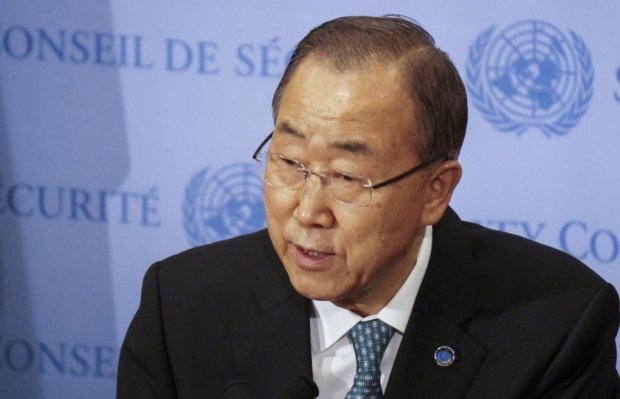According to unnamed sources within the UN, the decision came about after threats from Riyadh and its allies that they would withdraw funding for UN programs if the move was not reversed.
The decision to include Saudi Arabia was based on evidence compiled by the UN itself that Riyadh was responsible for at least 60 percent of child deaths and injuries last year, killing 510 and wounding 667. The Saudi-led coalition began a military campaign in Yemen in March last year with the aim of preventing rebels and forces loyal to Yemen's ex-President Ali Abdullah Saleh from taking control of the country.
The Houthis, Yemen government forces and pro-government militia have been on the UN blacklist for at least five years and are considered "persistent perpetrators." Also appearing again on the list is al Qaeda in the Arabian Peninsula. IHRC finds it deeply disturbing that the UN should cave in to what is essentially a campaign of blackmail led by Riyadh. It is an affront to justice and a hammer-blow to the credibility of the UN in holding to account those who violate international laws.
This is not the first time the UN Secretary General Ban Ki Moon has wilted under pressure over child deaths. He intervened last year to prevent the blacklisting of Israel over child casualties in the Gaza Strip arising from Tel Aviv's 2014 assault codenamed 'Operation Protective Edge' under pressure from Washington.
That appears to have set an alarming precedent that has encouraged other human rights abusers, particularly those on which the UN is financially dependent, to view the UN as a paper tiger which can be manipulated at will. The UN decision also undermines the principle of universality by sending the unavoidable message that the UN operates a differential system of justice in which the wealthy donor nations are above the law while those who cannot afford to threaten or intimidate the organization are subject to sanction.
We cannot buy the Secretary General's reported justification that the most recent reversal was one of the most painful and difficult decisions he has had to make and that he acted in the face of the "very real prospect that millions of other children would suffer grievously if, as was suggested to me, countries would de-fund many UN programs.”
The letter states "the truth of the matter is that your job of upholding principles and rights requires an accompanying integrity and resoluteness without which your organization might as well not exist. Without the will and courage to stand up to the powerful the UN risks becoming a laughing stock in the eyes of politicians and public alike. The UN cannot protect rights in one place with any conviction while effectively giving the green light for them to be abused elsewhere. We hope that you will reverse your decision and restore Saudi Arabia to the blacklist."
SH/IHRC
